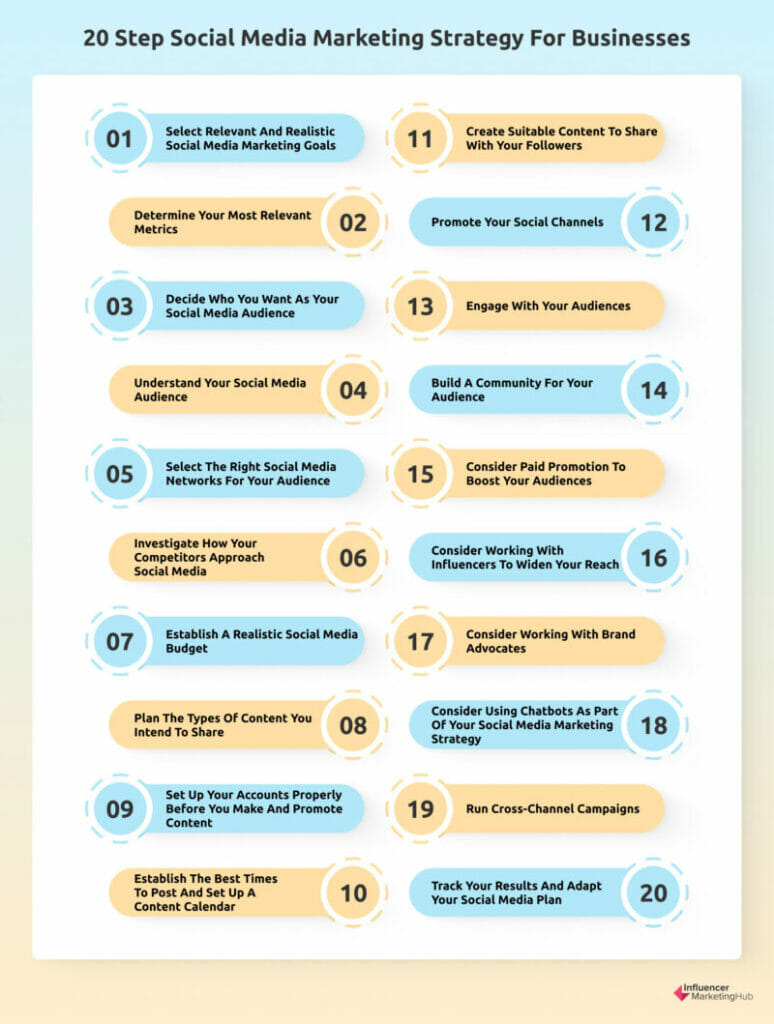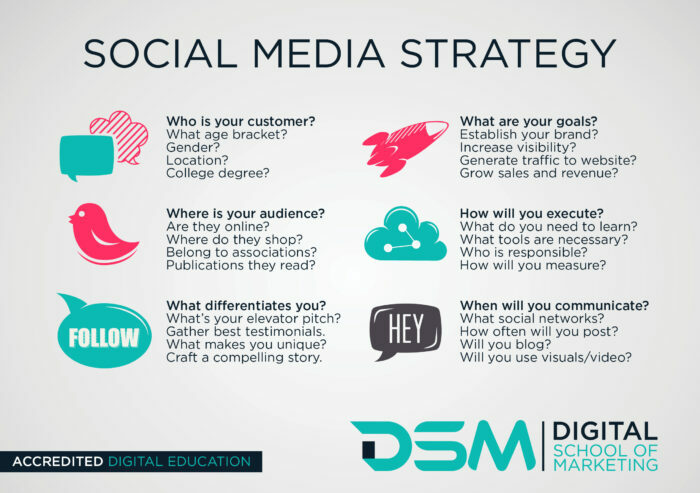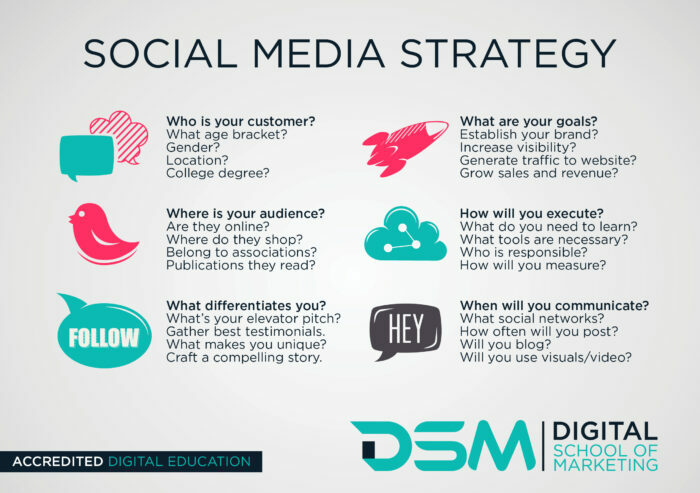
So, you’re in the world of social media marketing, huh? Well, let me tell you, it’s a wild ride! With so many platforms and trends constantly changing, it can be tough to keep up. But fear not, my friend, because I’ve got some effective strategies up my sleeve that will help you navigate this ever-changing landscape with ease. Whether you’re a small business owner looking to expand your reach or an aspiring influencer trying to build your personal brand, this article will provide you with the insights and tips you need to succeed in social media marketing.
In this article, we’ll dive deep into the world of social media marketing and explore some of the most effective strategies to help you achieve your goals. From creating compelling content that resonates with your audience to utilizing different platforms to maximize your reach, we’ll cover it all. You’ll learn the importance of understanding your target audience, how to leverage the power of storytelling, and the dos and don’ts of engaging with your followers. So buckle up, my friend, because by the time you’re done reading, you’ll be armed with all the knowledge you need to crush it in the world of social media marketing.

This image is property of influencermarketinghub.com.
Understanding Social Media Marketing
Social media marketing refers to the use of social media platforms to promote a product, service, or brand. It involves creating and sharing content on social media networks, engaging with followers, and utilizing various strategies to drive traffic, increase brand awareness, and generate sales. In today’s digital era, social media marketing has become an essential tool for businesses of all sizes.
Social media marketing encompasses various activities, such as posting content, engaging with users, running targeted ads, and analyzing metrics. It is a powerful way for businesses to connect with their target audience, build brand loyalty, and drive conversions. Social media platforms, such as Facebook, Instagram, Twitter, and LinkedIn, allow businesses to reach a vast number of potential customers and engage with them in a more personalized and immediate way.
Social media marketing plays a crucial role in the success of businesses today. Here are some reasons why it is essential:
Increased brand visibility: Social media platforms have immense user bases, providing businesses with the opportunity to reach millions of potential customers. By promoting their products or services on social media, businesses can increase their brand’s visibility and expand their reach.
Build brand loyalty: Social media allows businesses to interact with their customers on a more personal level. By responding to comments, messages, and reviews, businesses can build strong relationships with their audience, foster brand loyalty, and create brand advocates who will promote their products or services to others.
Drive website traffic: Social media is a powerful tool for driving traffic to a business’s website. By sharing engaging and relevant content, businesses can direct users to their website, where they can learn more about the brand, make a purchase, or sign up for a service.
Boost conversions: Social media platforms provide businesses with the opportunity to run targeted ads to reach their desired audience. By utilizing advanced targeting options, businesses can deliver their ads to users who are most likely to be interested in their products or services, increasing the chances of conversions.
Competitive advantage: In today’s competitive business landscape, having a strong social media presence can give businesses a significant advantage. By actively engaging with their audience, sharing valuable content, and staying up-to-date with industry trends, businesses can position themselves as industry leaders and gain a competitive edge.
Utilizing social media platforms for marketing offers numerous benefits for businesses:
Cost-effective: Compared to traditional marketing channels, social media marketing is generally more cost-effective. Setting up a social media account is free, and businesses only need to allocate resources for creating content and running ads.
Targeted advertising: Social media platforms provide advanced targeting options, allowing businesses to reach their desired audience. By defining specific demographics, interests, and behaviors, businesses can ensure that their ads are shown to users who are most likely to be interested in their products or services.
Real-time engagement: Social media enables businesses to engage with their audience in real-time. This immediate feedback and interaction can help businesses build trust, address customer concerns, and establish a strong brand presence.
Measurable results: Social media marketing allows businesses to track and analyze various metrics, such as reach, engagement, and conversions. By monitoring these metrics, businesses can measure the success of their marketing efforts and make data-driven decisions to optimize their strategies.
Increased brand awareness: Sharing content on social media platforms increases brand visibility, allowing businesses to reach a wider audience. This increased exposure can lead to higher brand awareness and recognition.
Choosing the Right Social Media Platforms
When it comes to social media marketing, choosing the right platforms to focus on is crucial. Not all social media platforms are created equal, and different platforms attract different demographics. Here are some factors to consider when choosing the right platforms for your business:
Identifying target audience demographics
Understanding your target audience’s demographics is essential to select the most appropriate social media platforms. Consider factors such as age, gender, location, and interests. For example, if your target audience consists mainly of professionals and businesses, platforms like LinkedIn might be more effective. On the other hand, if your target audience is younger and more visually-oriented, platforms like Instagram or TikTok might be a better fit.
Researching the popularity of different platforms
Research the popularity and user base of different social media platforms to determine which ones are most relevant to your business. Look at factors such as active monthly users, engagement rates, and user behavior. Platforms like Facebook, Instagram, Twitter, and LinkedIn are generally popular, but the popularity can vary across different regions and demographics.
Evaluating platform features and advertising options
Consider the features and advertising options offered by different social media platforms. Look for platforms that provide the tools and features that align with your marketing goals. For example, if you plan to run targeted ads, look for platforms that offer robust advertising capabilities. Also, consider the type of content you plan to share and whether the platform supports the format (e.g., images, videos, long-form content) you want to use.
Creating Engaging and Relevant Content
Creating engaging and relevant content is key to attracting and retaining your audience’s attention on social media. Here are some strategies to help you create content that resonates with your audience:
Understanding the target audience’s preferences
To create content that resonates with your audience, it’s essential to understand their preferences, interests, and pain points. Conduct market research, analyze customer feedback, and use tools like social listening to gain insights into your audience’s needs and desires. This understanding will guide you in creating content that provides value and captures their attention.
Developing a content strategy
Developing a content strategy will help you plan and organize your social media content in a cohesive and strategic way. Your content strategy should outline the types of content you will create, the platforms you will use, and the goals you hope to achieve. It should also consider the frequency of posting, the tone of voice, and the messaging that aligns with your brand.
Utilizing visuals and multimedia
Visual content tends to perform better on social media than plain text. Incorporate eye-catching visuals, such as images, infographics, and videos, into your content strategy. Visuals help grab attention, communicate messages more effectively, and increase engagement. Consider leveraging user-generated content and interactive media, such as polls, quizzes, and contests, to increase user engagement and participation.
Building a Strong Brand Presence
Building a strong brand presence on social media is essential for establishing brand identity and creating a loyal following. Here are some strategies to help you build a strong brand presence on social media:
Consistent branding across platforms
Consistency is key when it comes to branding. Ensure that your brand’s visual identity, tone of voice, and messaging are consistent across all social media platforms. This consistency helps create a cohesive brand experience and makes it easier for your audience to recognize and connect with your brand.
Creating a unique brand voice
Developing a unique brand voice sets you apart from your competitors and helps your audience identify and remember your brand. Consider the personality and tone you want to portray through your social media content – whether it’s casual and conversational, professional and authoritative, or quirky and humorous. Aim to create a brand voice that resonates with your target audience and aligns with your overall brand identity.
Establishing brand personality
Your brand’s personality is another essential aspect of building a strong brand presence. Consider the values and attributes you want your brand to be associated with. Is your brand playful and exciting, or is it serious and trustworthy? Understanding your brand’s personality will help you create content and engage with your audience in a way that reinforces your brand identity.

This image is property of www.ssdntech.com.
Utilizing Analytics and Tracking Tools
Tracking and analyzing social media metrics is crucial for measuring the effectiveness of your marketing efforts and making informed decisions. Here’s why utilizing analytics and tracking tools is important:
Tracking social media metrics allows you to understand your audience’s behavior, identify trends, and evaluate the success of your marketing campaigns. By monitoring metrics such as reach, engagement, clicks, conversions, and customer sentiment, you can gain insights into what is working and what needs improvement. This data helps you refine your strategies and optimize your content for better results.
Choosing appropriate analytics tools
There are various social media analytics tools available that can help you track and analyze your social media performance. Some popular tools include Google Analytics, Sprout Social, Hootsuite, and Buffer. Consider your specific needs and goals when selecting an analytics tool. Look for features such as real-time data, easy-to-understand visualizations, and advanced reporting capabilities.
Interpreting and using data to inform marketing strategies
Once you have gathered data from your analytics tools, it’s essential to interpret the data and use it to inform your marketing strategies. Look for patterns and trends in the data to identify successful tactics and areas for improvement. Use this information to adjust your content strategy, targeting options, and advertisement campaigns. Data-driven decision-making ensures that you are continuously optimizing your social media marketing efforts based on actual performance.
Engaging with the Social Media Community
Engaging with your social media community is crucial for building relationships, establishing trust, and fostering brand loyalty. Here are some strategies to effectively engage with your audience:
Responding to comments and direct messages
Make it a priority to respond to comments and direct messages from your audience. Prompt and personalized responses show that you value their feedback and are committed to their satisfaction. It also helps create a positive brand image and encourages further engagement.
Participating in discussions and answering questions
Engage with your audience by participating in relevant discussions and answering questions. Be proactive in providing valuable insights, advice, and information related to your industry. This positions you as an authority and builds credibility, increasing the likelihood of your audience trusting and relying on your brand.
Collaborating with influencers and industry leaders
Partnering with influencers and industry leaders can help amplify your brand’s reach and credibility. Identify influencers or thought leaders in your industry who align with your brand values and have a significant following. Collaborate with them through sponsored content, guest posts, or joint campaigns to tap into their audience and gain exposure.

This image is property of digitalschoolofmarketing.co.za.
Implementing Paid Advertising Strategies
While organic reach is valuable, utilizing paid advertising strategies can help boost your social media marketing efforts and reach a wider audience. Here are some considerations for implementing paid advertising strategies:
Understanding the different advertising options
Different social media platforms offer various advertising options, including display ads, sponsored posts, video ads, and carousel ads. Familiarize yourself with the advertising options available on the platforms you choose to focus on. Consider the format that best suits your content and marketing goals.
Setting clear advertising goals
Define clear goals and objectives for your paid advertising campaigns. Do you want to increase brand awareness, drive website traffic, or generate leads? Setting specific goals will help you create targeted campaigns and measure their success accurately.
Targeting specific audience segments
One of the advantages of paid advertising on social media platforms is the ability to target specific audience segments. Leverage the advanced targeting options available on social media platforms to ensure that your ads reach the most relevant audience. Define your target audience’s demographics, interests, and behaviors to optimize your targeting and increase the chances of converting users into customers.
Monitoring and Managing Online Reputation
Maintaining a positive online reputation is crucial for building trust and credibility. Here’s how you can monitor and manage your online reputation:
Proactively addressing negative feedback
Negative feedback is inevitable, but how you handle it matters. Monitor your social media channels for negative comments or reviews, and respond promptly and professionally. Address the concerns raised and offer solutions or assistance. By handling negative feedback with empathy and transparency, you can turn a negative experience into a positive one and show that you value your customers’ satisfaction.
Monitoring brand mentions and sentiment
Stay on top of your online reputation by regularly monitoring brand mentions and sentiment. Tools like Mention, Hootsuite, and Google Alerts can help you track when your brand is mentioned on social media platforms, blogs, or news articles. Monitor the sentiment associated with these mentions to identify potential issues or opportunities for engagement.
Responding to online reviews and feedback
Respond to online reviews and feedback, both positive and negative, to show your appreciation for positive experiences and address any concerns raised in negative reviews. This shows that you value your customers’ opinions and are committed to their satisfaction. Take the opportunity to thank customers for positive reviews and use negative reviews as a chance to improve your products or services.

This image is property of marketwithfirefly.com.
Staying Up-to-Date with Industry Trends
Social media marketing is constantly evolving, and staying up-to-date with industry trends is essential for maintaining a competitive edge. Here are some strategies to stay informed:
Stay informed about the latest trends, updates, and best practices in social media marketing. Follow industry-leading blogs, subscribe to newsletters, and engage with industry professionals and influencers on social media. This ensures that you stay on top of emerging trends and can adapt your strategies accordingly.
Attending conferences and webinars
Attending conferences, webinars, and industry events is a fantastic way to gain insights and learn from industry experts. These events provide opportunities for networking, knowledge sharing, and staying informed about the latest developments in social media marketing.
Networking with industry professionals
Connect and network with industry professionals, both online and offline. Engage in industry-specific Facebook groups, join LinkedIn communities, and attend local or industry-specific events. This allows you to exchange knowledge, share experiences, and stay up-to-date with the latest trends, challenges, and solutions in the social media marketing landscape.
Conclusion
Effective social media marketing requires a strategic approach and continuous adaptation to industry trends. Understanding the importance of social media marketing in business, choosing the right platforms, creating engaging and relevant content, building a strong brand presence, utilizing analytics and tracking tools, engaging with the social media community, implementing paid advertising strategies, monitoring and managing online reputation, and staying up-to-date with industry trends are all critical components of a successful social media marketing strategy.
By implementing these strategies and embracing the opportunities that social media presents, businesses can connect with their audience, increase brand awareness, and drive conversions. Remember that social media marketing is an ongoing process, and success requires continuous learning, experimentation, and adaptation to meet the ever-changing dynamics of the digital world. Take advantage of the power of social media and leverage these effective strategies to thrive in today’s competitive business landscape.

This image is property of wpsocialninja.com.





